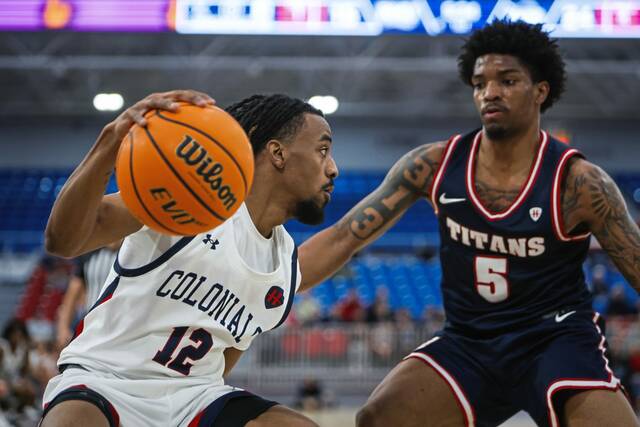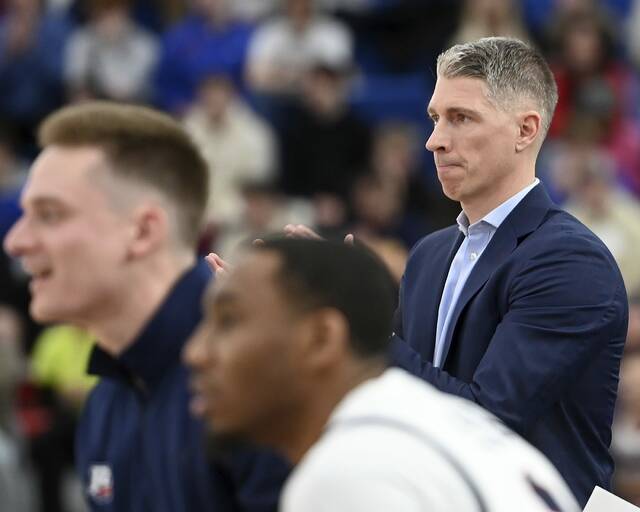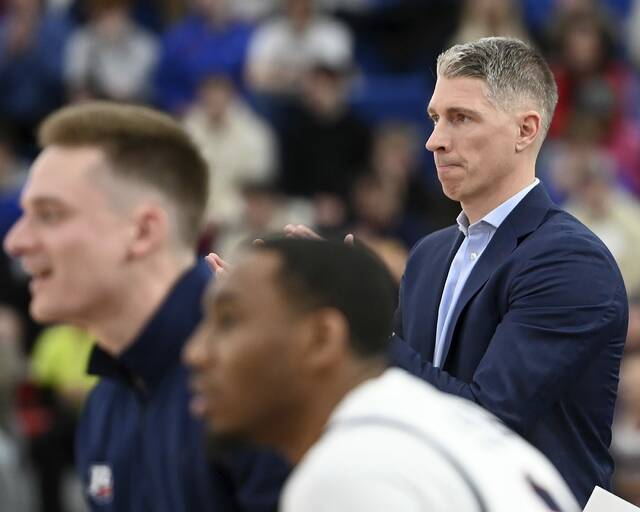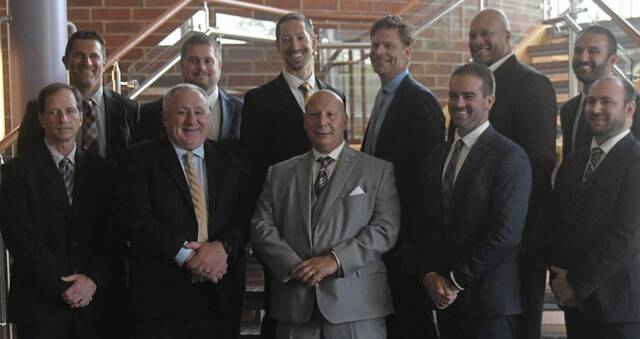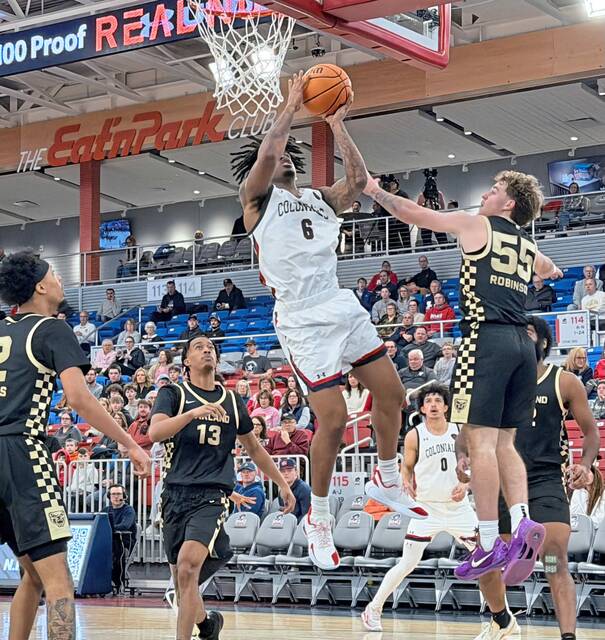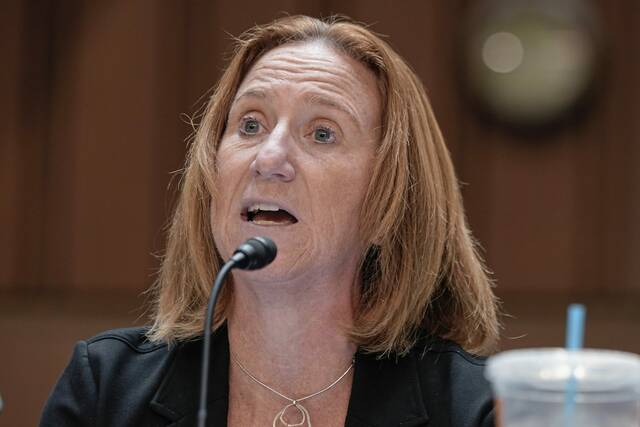If Robert Morris University truly wants its recently resuscitated hockey programs to play games this season, the school should stop playing games with the student-athletes who remain on the teams.
Immediately.
The decision makers in Moon Township should reinstate both the men’s and women’s programs right now and let them get down to the business of recreating rosters, while efforts to fundraise continue.
Because, from a hockey perspective, this middle-ground, trial-phase, money-raising period that has been created by the university is nothing but a two-week time-waster.
Frankly, it’s a dog-and-pony show from an economic contribution standpoint as well.
For those unfamiliar with the timeline, RMU shocked its athletics community by cutting the school’s successful men’s and women’s hockey teams on May 26. For the next month, university officials did little to engage with efforts to save the programs, while apparently operating under a premise that neither team would be part of the upcoming budget.
That was until a coalition of the displaced student-athletes hired high-powered sports attorney Jeffrey Kessler to investigate a legal path toward reinstatement,
Those two developments occurred on June 28. After a reported meeting of some of the parties involved in mid-July, RMU issued a July 14 press release stating that the institution would partner with the newly formed Pittsburgh College Hockey Foundation “in an effort to raise sufficient funds to support the reinstatement of RMU’s NCAA Division I men’s and women’s ice hockey programs in time for the 2021-22 season.”
As the release stated, the hope was to raise enough funds by July 31 “to bring the teams back and position them to be financially sustainable for the foreseeable future — with an overall fundraising goal of $7 million over the next five years.”
That’s an average of $1.4 million per season.
On the day of the announcement, athletic director Chris King said, “They don’t need to have all $7 million raised by then, but we will assess by the end of July whether there is a clear path to long-term sustainability. … We need to kind of gauge what kind of momentum and (what) the reality is of the potential funding that may be able to reinstate the programs.”
To date, the Pittsburgh College Hockey Foundation claims it has gathered pledges in excess of $500,000, with significantly more promised but not yet collected.
That’s where the mechanics of this high-stakes, hockey car-wash fundraiser come into play.
Generating money isn’t easy. It takes time. A two-week window in the middle of summer, coming out of a pandemic — with few people on campus and players spread all over the continent, not knowing if they have a team or even a reason to come back to campus — is less than ideal to bolster efforts.
Not to mention that when it comes to collections, it could take months before the actual cash arrives. After all, the Pittsburgh College Hockey Foundation was only organized in June. The IRS informed them that because of a post-pandemic backlog, it may take six to eight months to get their non-profit, tax-exempt status approved.
For donors who are waiting for that to occur before forking over contributions, real dollars wouldn’t hit the coffers until the end of next season. If there is one at all.
Meanwhile, the hockey players, coaches and alumni are singing for their supper — the literal “good ol’ college try” — in terms of fundraising. Yet without an announcement that a season will definitely occur, the rosters are withering and the coaching staffs are shrinking. Some assistant coaches already have new jobs. The men’s roster is already down to approximately 15 players, and I’m told the women’s situation is worse.
The transfer portal is finally thinning, especially on the women’s side. The conference schedules are out. And that July 31 deadline is very real because that’s when the NCAA needs to know if RMU plans to have teams or not.
Competing under the current conditions is going to be difficult at best for men’s head coach Derek Schooley and women’s head coach Paul Colontino. Delaying another two weeks may make it impossible.
By the way, if the university is as committed to raising funds as the foundation is, they aren’t doing much publicly. I’ve been told that King, the board of directors and university President Christopher Howard are making efforts behind the scenes.
But what’s being done publicly? As of Monday night, the university has posted nothing on its athletics page about fundraising efforts since the initial press release last week. There is no direct link for pledges anywhere to be found on the men’s or women’s hockey pages. The last entry for the men’s page was in April. The women’s page has had one update since June 30.
As of Monday afternoon, the RMU athletics department Twitter feed hasn’t referenced a fundraising movement since retweeting the university announcement on July 14. Neither team feed has tweeted since May 22. The university feed has had a few retweets of PCH Foundation posts, but that’s it. Nothing organic. Nothing on the front page of the website or out front on the “Alumni & Giving” pages.
Does that sound like a partnership to you? It doesn’t to me.
Here’s what the university should do. It should immediately announce that the men’s and women’s teams are both coming back for at least 2021-22 and allow the coaches to cobble together a roster and a schedule.
Then it should push back any loose benchmarks for fundraising goals into early 2022. And if the programs go belly up by then, at least they can play out the year and the student-athletes can organize a plan for the next season and recruits can have time to find new homes without the chaos they went through this spring.
For all the negative blowback the administration got in the wake of canceling the teams in the manner that they did previously, they’ll get roasted even more if the teams were resuscitated for two brief weeks under these conditions.
It’s going to look like the university gave a half-hearted second chance to the hockey programs as a way to shift the onus of responsibility onto their backs at the last minute. That would be incredibly stupid for the administration to do.
Then again, every time Howard and his cronies have had to step into the public on this topic so far, they’ve mangled the messaging. So I put nothing past them.
Let’s be honest, Howard and his board members who initially tried to ditch hockey didn’t reverse course because they suddenly had a warm, fuzzy epiphany about the sport. They changed their minds because they were about to get sued by two lawyers with reputations for winning. And in the case of Kessler, winning in the Supreme Court.
They backpedaled on cutting the teams for one of two reasons.
A. They realized they’d spend more money and effort fighting the legal battle to erase the teams than they would’ve saved by dropping them in the first place.
Or …
B. They realized the student coalition had a case. That the school might lose. And that the details that may have become public as to how they attempted to go about eliminating the teams were going to make some university officials look very, very bad in court. Some of those details have already emerged.
Eh, who are we kidding? It was probably both.
So why the song and dance surrounding this two-week window until July 31? If RMU changes its mind again and says, “Nope, we are going to eliminate the programs after all,” they’ll probably get sued anyway. And they’ll be pilloried in the court of public opinion.
Bring the teams back for this year. Announce it now. Give them a shot to be something more than a punching bag in 2021-22, and reassess after that.
It’s what a good “partner” would do.




